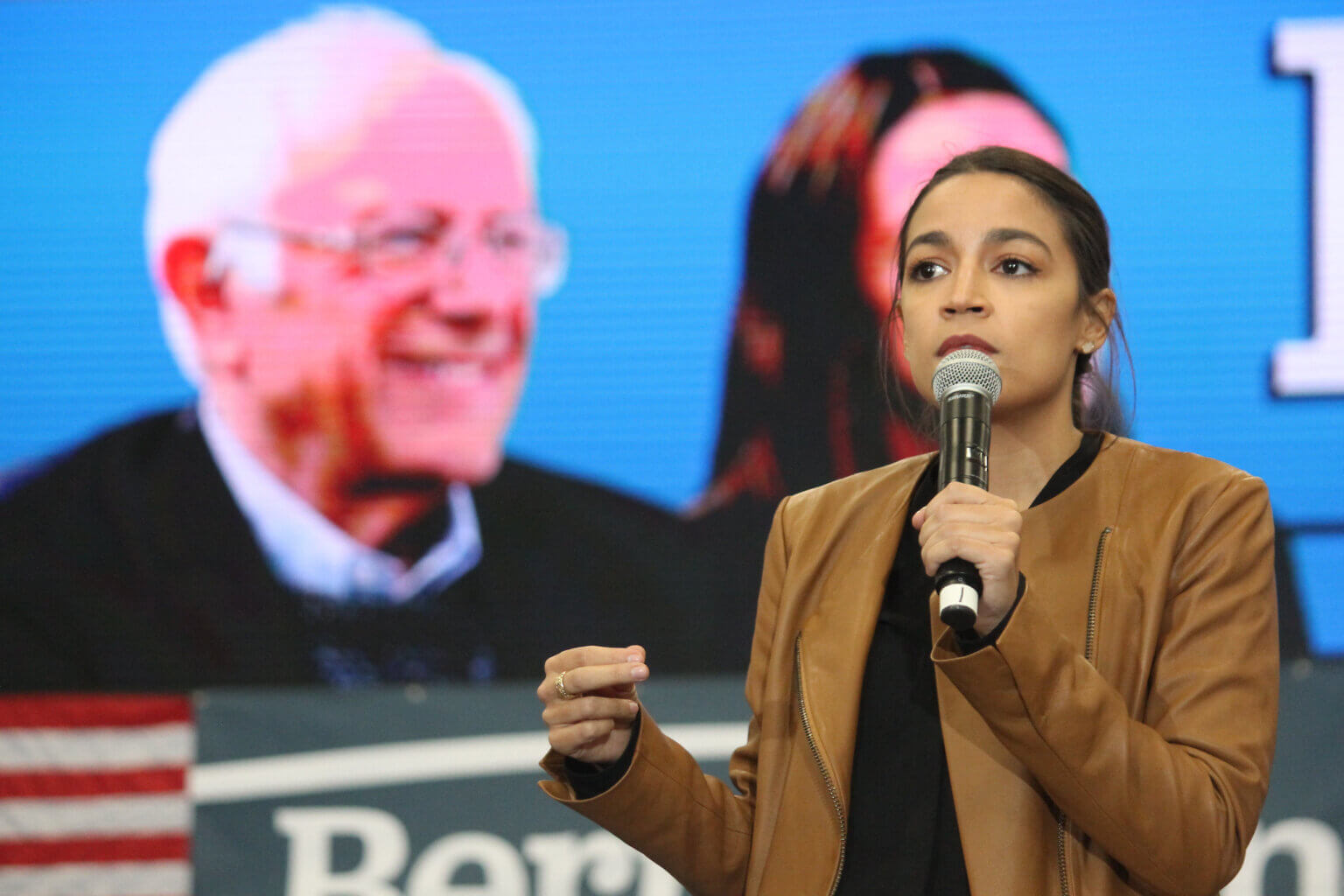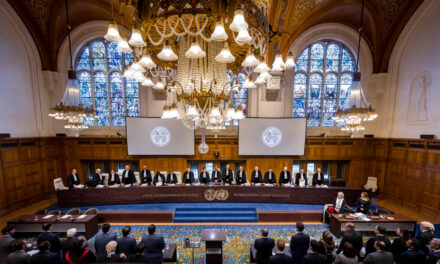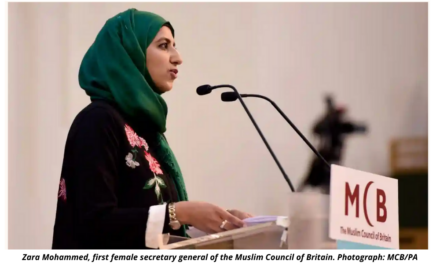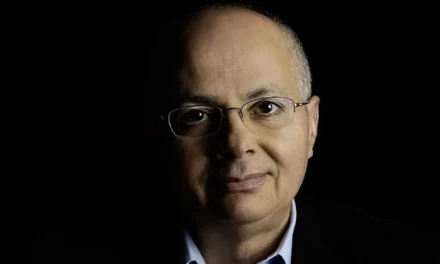REP. ALEXANDRIA OCASIO-CORTEZ SPEAKING TO ATTENDEES AT A RALLY FOR BERNIE SANDERS IN COUNCIL BLUFFS, IOWA IN NOVEMBER 2019. (PHOTO: FLICKR/MATT A.J.)
Hundreds of millions of dollars and years of U.S. NGO organizing culminated in the progressive wing of the Democratic Party and “The Squad,” voting in unison with their right-wing shills in the house to pass House Resolution 888. The vote passed 412 to 1. Progressive darlings Jamaal Bowman, Alexandria Ocasio-Cortez, and Ilhan Omar all signed off on ushering in another wave of anti-Palestinian oppression. Notably, Squad member Rashida Tlaib voted present, and Cori Bush did not vote.
The resolution, “Reaffirming the State of Israel’s Right to Exist,” is a full-on attack on the principles of Palestinian anti-colonial organizing. Resolution 888 negates Palestinian indigeneity, our claim to sovereignty, and our right to self-determination. At a time when Palestinians are calling for real anti-zionist allyship, this bill establishes a parallel between anti-zionism and antisemitism, conflating political organizing and opposition to zionist settler-colonialism as violence against Jewish people. The bill will provide a legal impetus and talking points to further crack down on university campus organizing and the dismantling of student groups. This is currently happening at Columbia University with Students for Justice in Palestine and Jewish Voice for Peace.
The bill posits that the historical atrocity of the Holocaust, wherein millions of Jewish people were systematically exterminated by the Nazi regime in Europe, serves as a justification for the subsequent displacement, slaughtering, and colonization of the Palestinian people. This argument, of course, is little more than gaslighting, as it instrumentalizes a historical trauma to justify the Israeli state operating a system of apartheid and indigenous erasure. The Democrats and the Squad essentially transformed all the political support Palestinian organizing has given them over the years into voting for Palestinians to pay the price for European white supremacy.
As of the time of this article, Within Our Lifetime was one of the few organizations to openly denounce the Democratic Party and the Squad for throwing the Palestinian movement under the bus — during an ongoing genocide, nonetheless. Notably withholding any public statement were the organizations Jewish Voice for Peace, US Campaign for Palestinian Rights, and If Not Now, among others, which have not even drawn attention to the vote, much less issue the scathing condemnations it so badly deserves.
Right now, there are literally millions of individuals joining Palestinians in our call for justice. While we are currently operating in a very fluid and dynamic landscape of social and political activism, we must ensure this groundswell of international and national solidarity is funneled into a praxis of decolonization. As such, it is imperative to critically reassess and recalibrate movement strategies and tactics — especially when they fall short in these critical moments. If we refuse to take an institutional and/or personal audit of our assumptions of social change but instead adhere rigidly to traditional methodologies without considering their efficacy, we potentially reinforce the very oppressive structures the movement seeks to challenge — as evidenced in the passage of HR 888.
Challenging perceptions of organizing principles, particularly in what can be a notoriously difficult crowd, can seem daunting or fruitless. But we are reminded of some important words of wisdom by Palestinian scholar Steven Salaita, “Let’s please abandon this smug idea that skepticism ruins the party for sensible people. It’s an ugly form of internal colonization. Recalcitrance can be a deep, abiding act of love, in this case a devotion to life realized in the form of a simple question: what happens to Palestine?”
With so much investment in public actions, it’s critical to understand where protests are positioned in the political escalation ladder. As great as civil disobedience looks on social media and all that it can do for NGO building, protests are, surprisingly, in and of themselves, not a panacea for social injustice — or in this case, genocide. Critically, protests serve as a tool, among many, for mass mobilization. They provide a platform for suppressed people, in this case, Palestinians, to have our voices heard in the public sphere — where we are so often intentionally excluded and erased. Oftentimes, these public displays of outrage are the first time our messages are heard in the mainstream. This visibility can often help serve as a catalyst for broader social and political change, promoting solidarity and empowerment among participants, as broader social justice formations tend to make up large-scale public events.
While protests are a quintessential component of liberation movements, they lack an intrinsic element of accountability. Organizers and activists have to build and ultimately implement mechanisms of consequence. To be effective, protests must be coupled with tangible consequences for the elected political representatives they often purport to target. For politicians, the only material consequence of their disregard for the demands of justice is the withholding of political and financial resources. Consider the perspective of an elected official: how significant is a 3-hour sit-in by a group that disrupts your day but still ensures the success of your campaign by continuing to cast votes in your favor?
As of the time of writing, Israel has renewed its genocidal bombing of Palestinians in Gaza. Israel has killed over 110 people just today, December 1, and more than 15,000 since October 7. Among those, Israel killed over 6,000 children, with more than 7,000 people still missing, likely buried under broken concrete and twisted rebar. Mass arrests, home demolitions, lockdowns, and settler attacks continue to escalate across the West Bank, particularly in Area C. With Prime Minister Benjamin Netanyahu returning to court next week to face corruption charges, and his coalition built like a house of cards, it’s hard to tell how he will use the moment to extend his career, but it will almost certainly include using violence against Palestinians.
While no one can predict the future, any judgment of the past with the current situation suggests that the Israeli state is primed to kill many, many more Palestinians in the days and weeks to come unless something changes radically.
As folks move forward in solidarity with Palestinians, either as individuals, small groups, or within organizations, we hope you ask yourself how you will hold the elected officials accountable who have authored the deaths of thousands of loved ones. You only need to ask yourself a few guiding questions: if I continue to vote and donate to the politicians who have enabled this genocide, what happens to Palestine? If I don’t pressure my friends around me to move boldly to hold decision-makers to account, what happens to Palestine? If I allow organizations to prioritize access to power over Palestinian life, what will happen to Palestine?














